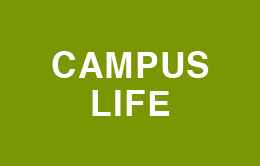
Deepening knowledge of petroleum engineering with an eye toward working abroad
| Department of Resources and Environmental Engineering, 3rd year undergraduate |
| Mariko Yuzawa |
| Kurihara Lab |

Q: I understand that you joined the Kurihara Lab. Tell us why.
For me, the deciding factor was the breadth of its field of research. Research at the Kurihara Lab involves specialties such as modeling of petroleum and natural gas reservoirs and evaluation of oil and gas reserves. But the lab also conducts research into geothermal energy, and I thought that the wide range of study topics would expand the range of choices for my own specialty.
Environmental protection and resource development
go together like wheels and a car
Q Tell us what attracted you to the Department of Resources and Environmental Engineering.
For me, the greatest attraction is that by studying both resources and the environment, I gain understanding of the relationship between the two. When I first entered the Department of Resources and Environmental Engineering, I thought from its name that it dealt with environmental problems. But studies during the first year were more about resource development, which seemed incongruous. The weight shifted more to the environmental field later on, but in retrospect, I realize that it would have been difficult to understand the later classes without the knowledge gained through the study of resources. I have come to understand that the two subjects cannot really be studied in isolation, but are inseparable.
Q Were any of your courses particularly memorable?
During an inorganic chemistry experiment in my second year, I collected water from a garden pond and analyzed its components. The analysis was done in several stages, and one of the first steps was to measure the water’s pH. That was a simple task, and that part of the report I wrote only took about 10 pages. But as the experiment proceeded, the types of analysis expanded to include methods such as redox titration*, and the reporting requirements increased accordingly, so that eventually I wound up writing a report that was 60 pages long.
It seemed like a really big challenge at that time, but the work resulted in something tangible that left me with a sense of accomplishment once the report was submitted. Looking back, I think it was good practice for writing a graduation thesis.
* A method for determining the concentration of a substance using a few drops each of an oxidant and a reducing agent.
Zealous about research and English
with dreams of working abroad
Q Have you thought about what you’d like to do after graduation?
I’m planning to go on to graduate school and get my master’s degree, and then I want to seek employment. I haven’t thought about a particular industry, but I am interested in working abroad. When I was in junior high, I did a home stay in Australia. The home there had horses, and the seasons were the opposite of those in Japan. It was a very stimulating experience, and I would like to have such an experience again. To achieve that, I want to acquire skills during post-graduate research, polish my English during the three years until my master’s course, and become a person capable of working internationally.

